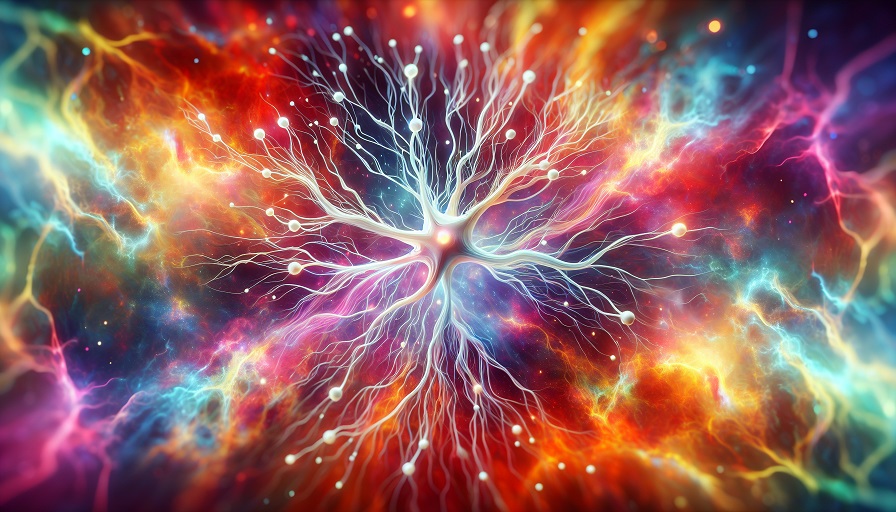
You’re tired. Mentally drained. Foggy. The automatic advice? “Just get more sleep.” And sure, sleep is critical. But what happens when you’re already sleeping enough – or at least trying to – and you still wake up feeling like your brain’s running on fumes? That’s where the conversation needs to go deeper.
Sleep is important, no doubt about it. But it’s not the whole picture. There are other powerful, science-backed ways to replenish your brain’s energy and restore its clarity. And in today’s overstimulated world, relying on sleep alone to “fix” everything is like expecting one glass of water to hydrate a marathon runner.
Contents
When Sleep Isn’t the Magic Bullet
Let’s be clear – chronic sleep deprivation will wreck your cognition. Your memory, attention, mood, and even your immune system depend on high-quality rest. But here’s what often gets missed: some people get 7–9 hours of sleep and still feel mentally depleted.
This could be due to fragmented sleep, poor sleep quality, or the fact that sleep is just one part of a broader brain health ecosystem. If your brain isn’t supported during waking hours – nutritionally, emotionally, environmentally – it won’t bounce back just because you laid down for eight hours.
The Brain’s Energy Equation
Your brain runs on energy like any other organ. But unlike your muscles, which can rest when you sit down, your brain is constantly “on.” It processes stimuli, regulates emotions, manages decisions, and juggles countless background functions. That’s a high metabolic load.
So even if you sleep, if you’re not restoring the right kind of energy – neurological, nutritional, and emotional – you’ll still hit mental walls. What you need is a broader toolkit to refuel and refresh.
Alternative Ways to Recharge Your Brain
Here are several underused but effective ways to rejuvenate your mind, especially when sleep alone isn’t doing the trick.
1. Active Rest
Paradoxically, one of the best ways to recharge is to engage in low-intensity, enjoyable activity – something your brain can do without pressure. Think gardening, drawing, organizing a shelf, or going for a casual walk. This kind of rest gives your mind space to wander without being idle or overstimulated.
2. Mental Novelty
Brains love newness. When you break out of repetitive tasks and experience something novel, your brain generates dopamine – the reward chemical linked to motivation and attention. That jolt of novelty can “reset” mental fatigue. It doesn’t have to be dramatic; even taking a new route home or reading an unfamiliar genre can do the trick.
3. Nature Exposure
There’s a reason your brain feels clearer in a forest or near water. Natural environments reduce stress hormone levels and activate the parasympathetic nervous system (aka your “rest and digest” mode). Studies show that even 20 minutes in a park can noticeably boost attention and working memory.
4. Controlled Breathing & Cold Exposure
Breathwork and short bursts of cold exposure (like a cold shower) stimulate your nervous system and improve brain resilience. They activate the vagus nerve and increase norepinephrine, a neurotransmitter tied to focus and alertness. These tools aren’t for everyone, but when practiced safely, they can be incredibly energizing.
5. Nutritional Support
Food is fuel, and your brain burns a lot of it. Poor nutrition can drain your mental energy, even if you’re sleeping enough. Stable blood sugar, adequate protein, and a diet rich in brain-supportive nutrients like omega-3s, B vitamins, and magnesium all contribute to sharper cognitive function.
6. Social Interaction (the Right Kind)
Humans are social creatures. The right kind of connection – supportive, energizing, safe – can recharge your brain in ways that solo activities can’t. It lowers cortisol, increases oxytocin, and gives your mind a break from internal monologue mode.
The Role of Brain Supplements in Mental Energy
Another often overlooked way to support your brain’s energy systems is through nootropics – targeted supplements that nourish brain function. While they aren’t a replacement for rest, they can help optimize the conditions under which your brain recharges and performs.
Take Rhodiola Rosea, for instance. It helps the body adapt to stress and may reduce mental fatigue. Citicoline supports cognitive energy and cell membrane integrity. Bacopa Monnieri aids memory and reduces cognitive strain over time. These compounds, found in brain supplements like Mind Lab Pro, support key aspects of brain metabolism, focus, and resilience.
By reinforcing the brain’s natural energy production and recovery systems, nootropics can complement your lifestyle habits, helping you feel more alert, focused, and capable – even when sleep isn’t the whole answer.
When to Push and When to Pause
It’s also important to recognize that not all tiredness means “stop.” Sometimes what we interpret as fatigue is really a lack of stimulation, or decision fatigue from mental clutter. Learning to distinguish physical exhaustion from cognitive stagnation is key.
At the same time, pushing through real brain fatigue without support is like revving an engine with no oil. It’ll go – but not for long. That’s why tools like strategic breaks, nourishing food, movement, and yes, smart supplementation, should be in your mental recovery kit.
Sleep is foundational – but it’s not a fix-all. Recharging your brain requires a mix of physiological, emotional, and environmental inputs. The good news? There’s more than one way to refill your mental tank.
If you’re already sleeping “enough” but still feel sluggish, it’s time to look beyond the pillow. Try active rest. Step into nature. Feed your mind the nutrients it craves. And consider targeted brain support to reinforce the systems that keep you sharp.
Your brain does incredible things for you every day. Don’t wait for it to break down before you give it what it needs to thrive.

